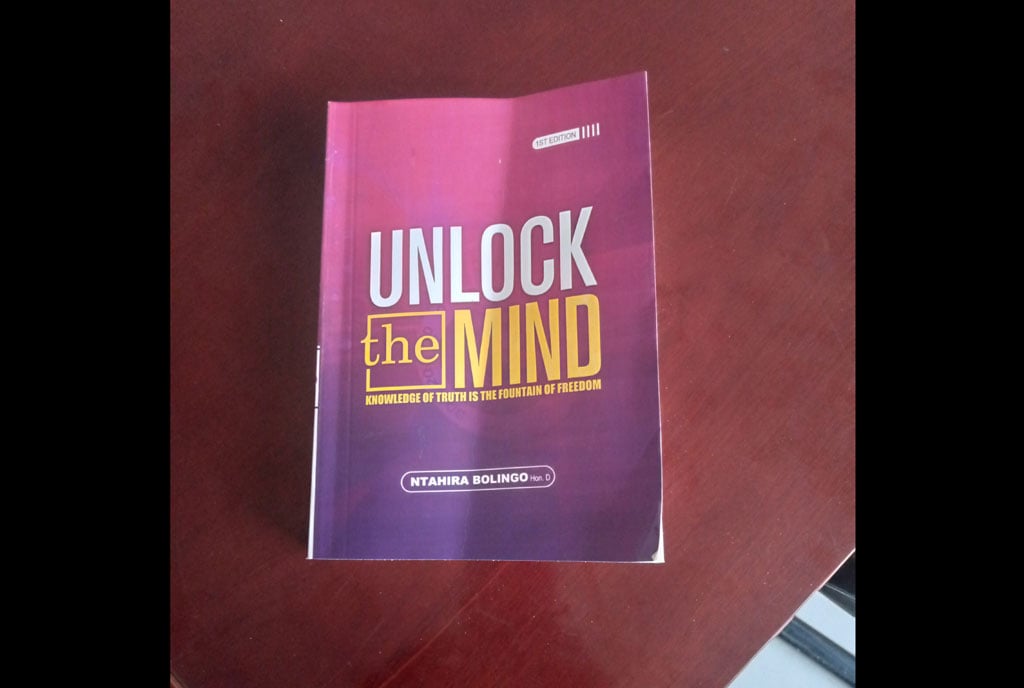Former refugee speaks out on decolonising the mind

Book cover. PHOTO/FILE
What you need to know:
- Book Title: Unlock the Mind: Knowledge of Truth is the Fountain of Freedom
- Author: Ntahira Bolingo
- Year of Publication: 2023
- Price: Shs60,000
- Pages: 260
- Where: Aristoc Bookshop
Uganda is famed globally for being the place where refugees easily find a home and in Ntahira Bolingo’s new book this is once again demonstrated. Bolingo was born in the restive eastern Democratic Republic of the Congo (DRC).
When the First Congo War (1996–1997) began in the wake of the 1994 Rwandan Genocide, ethnic Hutu extremists killed a projected one million marginal ethnic Tutsis and moderate Hutus in Rwanda. During and following the genocide, nearly two million Hutu refugees were matched to the Congolese border, mostly settling in refugee camps in the North Kivu and South Kivu provinces. A small subset of those Rwandans who entered the DRC were extremists who began organising militias within the Congo.
Pressure deepened as Tutsi militias organised against the Hutu groups and as foreign powers began taking sides. Whilst the rest of the world was busy getting engrossed in the English Premier League in the early 2000s, Bolingo’s village was attacked by gunmen. Thankfully, he managed to sneak out.
Bolingo had nothing with him when he found Samaritans in a lorry headed to the border town of Bunagana. Even without travel documents, Bolingo was allowed into Uganda where he settled in the southwestern town of Kisoro.
The author also explains how welcoming Ugandan security agencies were towards a refugee like him who had utterly nothing on him.
“ … I was surprised that the policemen welcomed me as if I was one of their relatives. I was told to make a statement, which was recorded in their books of registry,” Bolingo writes, adding that during his stay in Kisoro he was allowed to move wherever he wanted to go.
He proceeded to disclose thus: “ I know there are some countries that treat refugees like prisoners once received in their admission centres. There, you are not allowed to move. These are practices that need to be condoned […] Every person must have the right to movement.”
Having left Kisoro and seamlessly settled in the capital, Kampala, where founded a not-for-profit organisation called Hope of Children and Women Victims, Bolingo started to look into the ills that he reckons ensure Africans are stuck in underdevelopment and dearth.
One of the problems bedevilling the society is reading because the author says during slavery African ancestors were not allowed to read. Yet the slaves who wanted to learn could only do it in hiding to ensure that the master didn’t see that they were learning.
Mainstream slavery may have ended around 1900, but the author contends that Africans disinterest in reading and writing has been inherited. Reading, he says, to Africans is still a punishment that they only do when they expect examination.
“Have you ever imagined how it is quite impossible to develop if you don’t have a skill in reading books?” Bolingo asks, adding that this is one of the reasons why Africans remain ignorant and even leaders that are entitled to support them are misleading them that the cause of their poverty is the devil.
The author apportions Africa’s problem to a lack of unity among the 54 states. He cites the United States of America and the European Union which have achieved a lot in unity yet African states have failed to replicate the same.
“Others are struggling to have states united but for us we are busy planting ethnicity and tribalism. Who bewitched Africa? It is only in Africa where you will get a person taking a picture with a lot of bundles of money on the table and posting a picture,” he writes.




